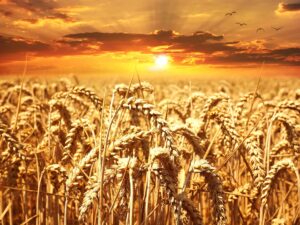More record-high temperatures are being predicted across BC this summer, which has some ranchers worried.

According to the Old Farmer’s Almanac, several places could be dealing with temperatures as high as 35 degrees towards the end of June and into mid-to-late July.
However, Kevin Boon with the BC Cattlemen’s Association told Vista Radio there’s still a chance we can avoid a worst-case scenario.
“It’s all going to depend on what our moisture level is in that ground. If we can get some early rains and some moisture, in that ground, it will help keep things green and if we can keep things green, it will certainly help things.”
“It’s really up to Mother Nature what she pours at us. And then it’s looking at things like the stored water so that we can irrigate, especially in the southern parts of the province where irrigation is prevalent and makes a big, big effect on our hay.”
Boon added regions like the Prairies, which includes Alberta, Saskatchewan, and Manitoba are in the same boat.
“We know that right now the prairies are pretty dry. Our feedstocks are depleted so we are looking to seeing what we can get for that moisture – of course, we need some heat to make it grow, being too cool doesn’t help either.”
On the surface, BC has experienced three of its worst wildfire seasons on record in the past five years, Boon mentioned a lot of work has been done behind the scenes to mitigate some of the risks but, when a blaze is active we often don’t think about the elevated temperature levels on the ground when groups like the BC Wildfire Service are trying to extinguish them.
“You know, we talk about the heat, and when we get up to temperatures that are 30 to 45 degrees trying to get in close and fight those fires, you are looking at another 20 to 30 degrees sometimes on top of that. It’s almost impossible to do so and it’s really a matter of trying to get them before they start.”
“The recreationists and those that like to be out in the backcountry and enjoying it that’s great, we understand that. But there is a huge responsibility on those folks to be careful about not only when they are there but what they leave behind, those shiny tin cans can generate heat and start fires.”
Boon stated the industry is “preparing for the worst, but hoping for the best” when it comes to the upcoming growing season.



